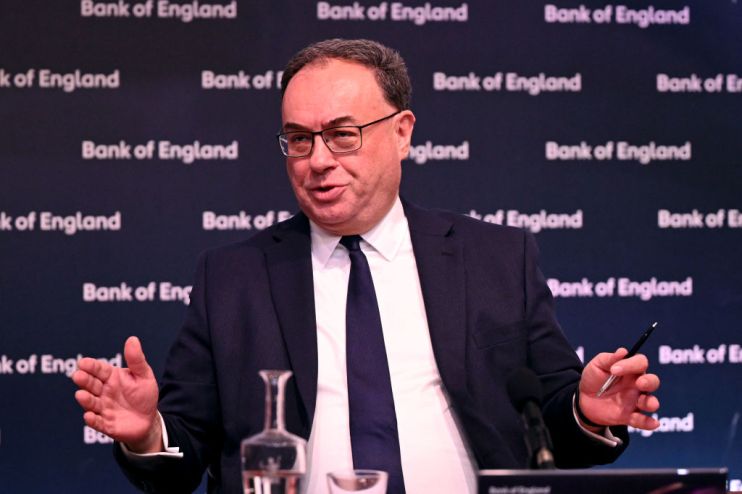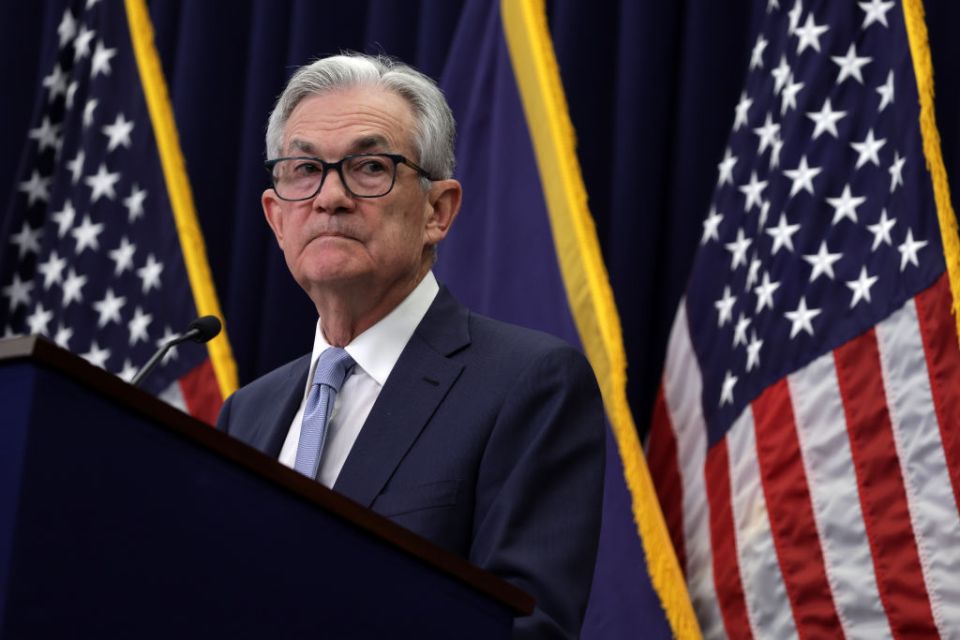Bank of England, Fed and ECB to heap more pain on global economy – but could peak rates be in sight?

City traders are gearing up for a week in which the world’s top central banks will heap even more pain on households and businesses by hiking interest rates to tame inflation – but they could send the first signal indicating they will stop doing so soon.
The UK, US and eurozone economies are beginning to respond to a series of aggressive rate hikes over the past year, raising the risk that further rate increases will make any recession longer than necessary.
While tighter financial conditions have cooled spending and growth, they have helped turn the tide against inflation, which has raced to multi-decade highs.
Easing price pressures and the threat of recession has prompted the market to bet rate cuts could land at the end of this year, but not before central banks deal one last round of rises this week.
Bank of England governor Andrew Bailey and co are expected to lift rates 50 basis points on Thursday to four per cent, a post financial crisis high and the tenth successive rise.
“A tight labour market, sharply rising wage growth, price indicators in the surveys still not consistent with achieving the inflation target and GDP holding up better than expected” will force the Bank into the move, analysts at Nomura said.
However, markets think this will be the Bank’s final “forceful” rate rise, a word it has used to describe its response to inflation for many months, and may even be its last in this current tightening cycle.
“We expect the [Monetary Policy Committee] to lay out the groundwork for a downshift in the pace of hikes going forward,” Sanjay Raja, senior economist at Deutsche Bank, said.
BoE, Fed and ECB have raised rates aggressively

The MPC – Threadneedle Street’s group of rate setters – will be slightly divided over how much pain to heap on the economy.
Although the majority, including Bailey and chief economist Huw Pill, will vote for a 50 point rise, there is a chance more dovish members, Swati Dhingra and Silvana Tenreyro, will back keeping rates unchanged. The pair did so at the last meeting in December.
The Bank’s economists are likely to tear up their prediction last November that Britain is on course for the longest recession in a century, mainly because expectations for where interest rates are headed have shifted markedly down since then. GDP forecasts will be revised up and inflation down.
The Bank uses market interest rate expectation to construct its economic forecasts. They have dropped to under 4.5 per cent from over five per cent over the last two months or so.
In November, the Bank said inflation will halve to just over five per cent by the end of the year. It is currently running at more than five times its two per cent target at 10.5 per cent, but has fallen for two months in a row.
Governor Bailey’s press conference starting around 12.30pm on Thursday will be closely watched in the City for any comments on whether the MPC thinks further rate hikes are necessary.
Similarly, Fed chair Powell’s remarks are set to shed light on whether Wednesday’s expected 25 point move is either the final or penultimate hike.
“It is now clear that we are heading into the final stages of that fight, with less aggressive blows needed to coax inflation lower. We envisage two final rounds before the fight concludes, starting with a smaller 25bp interest rate hike at next Wednesday’s announcement at 7pm GMT, taking the Federal funds target range to 4.50-4.75 per cent,” Ellie Henderson, economist at Investec, said.

But, the European Central Bank (ECB) is likely to buck the Fed and Bank’s path.
Although a 50 point rise is pencilled in by investors on Thursday, the ECB has lagged behind its international peers, meaning it is playing catch up.
President Christine Lagarde at Davos earlier this week explicitly told investors not to price in any let up on rate rises soon, saying she and her colleagues intend to “stay the course”.
Lagarde’s press conference has been billed by Nomura as a “showdown with the markets” due investors betting the ECB will not follow through with its forceful tightening promise.
By the end of this coming week, US, UK and European rates will be higher, but we will also have a better idea on when the countries respective central banks think rate rises will finally end.